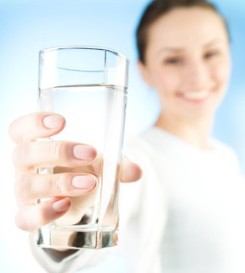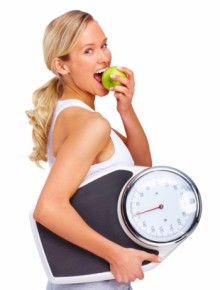Water, Body Weight, and the Scale...
 Friday, October 24, 2014 at 12:12PM
Friday, October 24, 2014 at 12:12PM 
It's normal to have day-to-day fluctuations in body water content, which actually follow variations in calorie intake (energy) as well as variations in the macronutrient (carbohydrate, protein, fat and alcohol) and sodium content of the diet. Carbohydrate and sodium in particular can both cause rapid changes in extracellular water. Additionally, intracellular water increases or decreases (along with increases or decreases) in glycogen (the storage form of carbohydrate) and protein.



